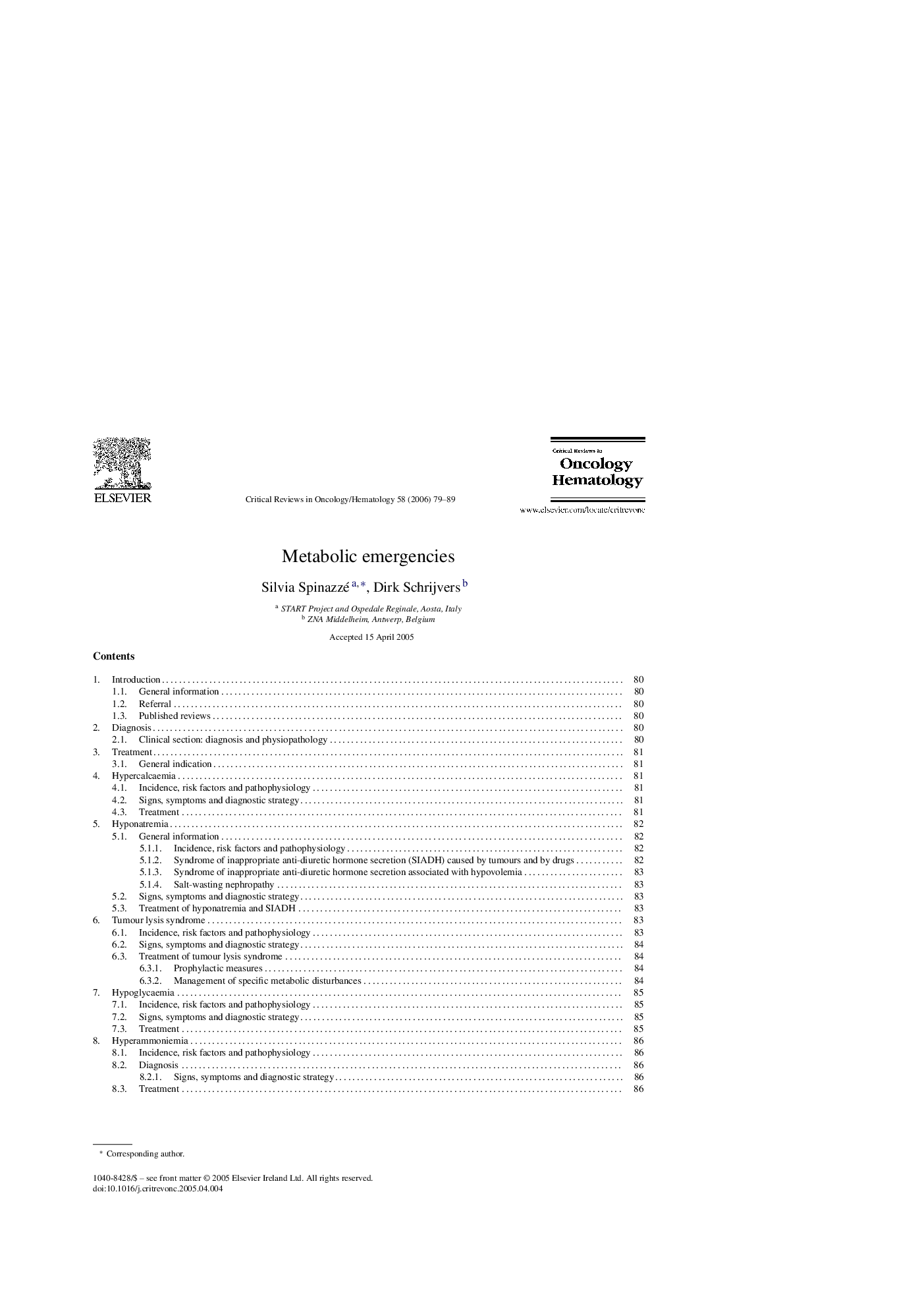| Article ID | Journal | Published Year | Pages | File Type |
|---|---|---|---|---|
| 3330366 | Critical Reviews in Oncology/Hematology | 2006 | 11 Pages |
Life-threatening metabolic complications observed in cancer patients are: hypercalcaemia, hyponatremia, hyperurcaemia, tumour lysis syndrome, hypoglycaemia, hyperuremia and hypercreatininemia secondary to renal failure, hyperammoniemia, lactic acidosis and adrenal failure. They may be associated with any kind of neoplastic disease causing dysfunction of vital organs, which can be determined by neoplastic spread, anti-cancer treatment or, more rarely, by paraneoplastic phenomena. The clinical presentation of metabolic complications is typically aspecific. Encephalopathy, raging from mild confusion to coma, is the most common and clinically most severe symptom. The severity of consciousness impairment is related to both the rate of onset and the magnitude of the metabolic disorder. The definitive diagnosis will be established by laboratory examination and radiological work-up. Cancer patients presenting metabolic should be referred to oncologic departments or intensive care units. The treatment of metabolic disorders include: prophylactic measures, emergency measures to preserve vital functions and to restore biological parameters and the treatment of the underlying primary.
